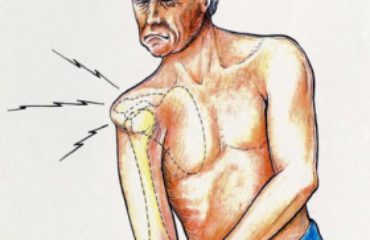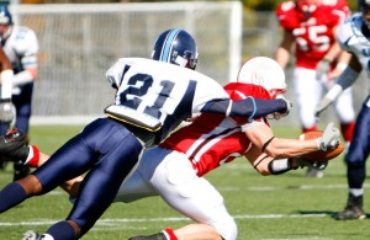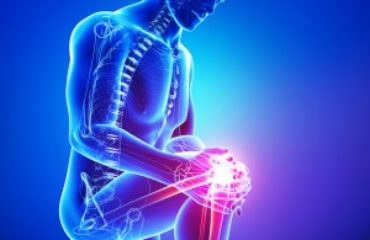Shoulder Sports Injuries
When someone has a shoulder injury, the trunk and spine are also affected. The main goals of treating a shoulder sports injury are to regain proper shoulder joint stability and to re-establish the patient’s kinetic chain (muscles and joints 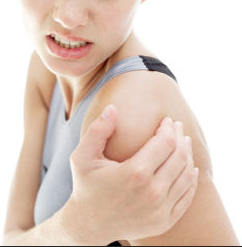 extending from the core of the body to the hand). All trunk and arm muscles must work together to perform sporting activities, such as throwing a ball, swimming, or swinging a racquet.
extending from the core of the body to the hand). All trunk and arm muscles must work together to perform sporting activities, such as throwing a ball, swimming, or swinging a racquet.
What types of shoulder sports injuries occur?
Types of sports injuries that affect the shoulder include:
- Traumatic dislocations – Joint dislocations often stem from a person falling on an outstretched arm. The arm is often pulled out of position, over-rotated, or impacted when this happens. The rounded humerus (upper arm bone) head then erupts out of the shoulder socket, which inhibits movement and causes pain. People with this injury may experience muscle spasms, tingling of the hands, and loss of mobility.
- Rotator cuff and shoulder tendon injuries – The rotator cuff is four muscles that work together to keep the humeral head in the shoulder socket. With repetitive motion or shoulder trauma, one or more of the tendons holding the muscles can tear, which causes pain.
- Labral tear – Around the shoulder socket is a cartilage ring called the labrum. This area is used to stabilize the shoulder. Any tear of the labrum can lead to pain deep in the shoulder joint. Labral tears also are associated with a clicking sound, limited mobility, and pain with throwing.
- AC joint sprain – The acromioclavicular (AC) joint connects the collarbone to the shoulder blade. Sprain of this joint occurs when someone lands on the shoulder or receives impact the top portion of the shoulder. An AC joint sprain will lead to pain with movement and loss of normal joint function.
What causes a sports-related shoulder injury?
Shoulder injuries usually result from some type of trauma or from repetitive, intensive motion. Shoulder injuries happen also from too much stress and strain on a joint, which occurs from weightlifting, throwing, and swinging a racquet. Risk factors for sports-related shoulder injuries are poor conditioning, improper stretching, and increasing the training regimen too quickly.
How are sports shoulder injuries diagnosed?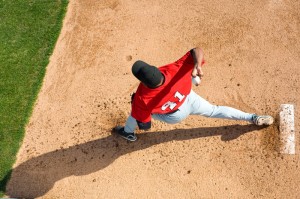
If you experience a shoulder injury, you will need to be evaluated by a doctor. Whether in the emergency department at a hospital, or an orthopedic specialist’s office, the doctor will inquire about your injury, conduct a physical examination, and take a medical history.
What can I expect during treatment/recovery?
Depending on what injury you suffer, patients are usually asked to modify activities so the injured shoulder can heal. The Phoenix sports doctor may recommend that you work with a physical therapist for a few weeks, to regain strength and motion in the injured shoulder. Depending on the injury, surgery may be required.
Dr. Adam Farber at Phoenix Shoulder and Knee is a top Phoenix shoulder specialist. He provides comprehensive treatment options for all types of sports injuries including the shoulder. This includes rotator cuff, labral injuries, biceps and more! Call us today.

